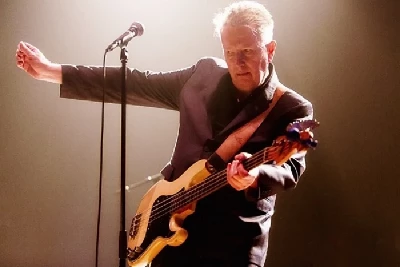In Dreams Begin Responsibilities - Resilience and A Life In Mono
by Steve Miles
published: 12 / 4 / 2022
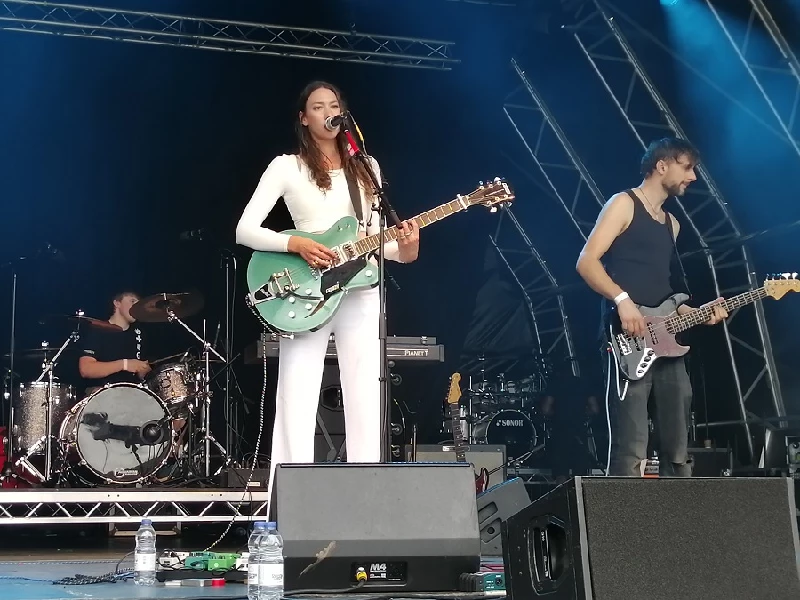
“Scared is what you're feeling. Brave is what you're doing.” - Emma Donoghue, ‘Room’ (novel, 2010) “Listening to other people that could articulate how I was feeling, who could do it in a way that meant something to me, that was amazing. So maybe I can do that for other people. But I don't need to write a biography. I don't need for people to know the details of the difficult things in my life for them to have those feelings.” – Sarah Clayton Strange as it seems, there are quite a few positive side effects of Covid 19 - the phenomenon, not the virus – as people who now enjoy working from home will happily tell you (on Zoom, obviously - not in real life), or as people who’ve been saved not just once but maybe even twice from the dystopian realm of distant relatives at Xmas would attest. I’ve written a few times here now about music and mental health, and the pandemic has facilitated that, because I think, it’s become much more okay to talk publicly and openly about feelings, at least in relation to the pandemic, than ever before. You can have a conversation with complete strangers about how they are coping, and what effect the lockdown has had on them, in a way that would never have been acceptable or comfortable before. And that’s good, because it means music and TV and books aren’t having to do all the healing, as so often they do. Mainly, this is because we’re all sort of in it together and have similar challenges. The Covid crisis has a lot of shared elements for everyone, and so we aren’t alone in our struggles: others can see what we’re going through because they’re going through it too. By contrast, if you are alone in your traumas, that’s when music needs to come in. “Often, I think it's like the most difficult things that you go through in life that you feel like you're totally on your own with, when no one else understands what's going on, and no one could possibly understand how you feel. And often it’s the hardest thing in the world to talk to someone about it. You feel like you can't talk about it. But you can listen to someone else talking about it through a song. And that's like its own therapy in some way.” – Sarah Clayton. I’ve joked about this idea recently at a couple of my own gigs, pretending that our set was a form of cheap therapy for me, and going so far as to suggest that I would be seeking feedback and advice from the audience on my mental health at the end. That only works because my songs often candidly address issues that matter to me. It’s not everyone’s cup of tea at all, but music matters a lot to me, as, I guess, it does to many of you that are reading as well. I’m not going to share any details of Sarah’s issues. I don’t need to. As she says, ‘I don't need to write a biography. I don't need for people to know the details of the difficult things in my life for them to have those feelings.’ I just hope that my music resonates with someone in a way that feels important to them. And it's not just another throw away song, because what would be the point of that?’ Resilience is a word that means different things to different people. Its original meaning is ‘to leap back’. To psychologists and social scientists, it refers to ‘the process of adapting well in the face of adversity, trauma, tragedy, threats, or significant sources of stress.’ It is, in short, a good thing. Most scientific studies conclude that a lack of resilience - a lack of ability to bounce back from mental challenges, or the lack of a sturdy enough psychological shield to protect you in the first place - correlates clearly to increased depression, anxiety, and so on, whilst a healthy resilience to life’s slings and arrows is closely connected to satisfaction and self-esteem. There can be few people in the country, or even the world, who have not had to reflect on their own ‘capacity to adapt in the face of challenging circumstances, whilst maintaining a stable mental wellbeing’ in the last 24 months - to try, in other words, to be resilient. Whether it be having too much work or not enough (being furloughed/losing your job) (this applies only to those of us not in government, obviously); whether it be being ill or seeing loved ones be ill, or even die; whether it be not being able to visit loved ones (this applies only to those of us not in government, obviously), or missing funerals, marriages and births; whether it be missing your own much needed healthcare (this applies only to those of us not in government, obviously), and cancelling gigs, or holidays; or whether it simply be missing having parties with friends (applies only to those of us not in government, obviously), this has been hard for us all to cope with. Simply living with the day-to-day dread and sense of everyday uncertainty of the last two years is perhaps as difficult as anything to try to rise above. And popular dialogue discusses this in terms of ‘resilience’ - that mysterious capacity of inner strength and bouncebackability that some people possess and others don’t. But if resilience is something you use to cope with trauma, how do you cope when the trauma predates your chance to develop resilience? And in talking to Sarah, I once again find myself exploring why music is one of those things that can matter more than anything else to people who have not had the best of times all the time. They have four songs on Spotify, recorded a while back when they were just a bit less fully formed than they are now, and two newly recorded songs ready for release, all of which we’ll look at later. I started by asking her why she made music. “Why do you make music?’ Why do you breathe? I think, it's the one thing that has come naturally to me as a person. And I love doing it. I love getting lost in it. So, if you can keep recreating that feeling then it feels good. Creating something from absolutely nothing. It’s the only thing I really have any kind of burning desire to do.” When you hear Life In Mono, it’s her voice that grabs you first. It’s very strong, very authentic, and very full of emotions. It’s also technically very, very good, but Sarah doesn’t pimp its range or depth in the popular manner of scantily-dressed talent show divas. Instead, she uses it to colour the light and shade she is trying to paint. I’ve seen them play quite a lot recently. I’ve seen them play in front of a middle-aged, middle-class crowd of world music fans, at a dingy death-metal diehards’ club, and on a big spotlight-scorched stage at a festival in front of a general cross-section of the population of Bath, and they’ve gone down well every time, simply by being themselves and sounding so good, despite the subject matter of their songs and their lack of compromise in the sound. Sarah alternates between guitar and keyboards, and of course sings. Adam, the bassist, is simple and spot on. He is also, I imagine, an attractive pull to both sexes. He talks more on stage than the average bassist and is warm in his relationship with the crowd but cool in a traditional sleeveless t-shirt, muso way. Sarah loves Adam: “Adam doesn't listen to lyrics at all. He doesn't even know what the lyrics are of our songs. But he knows the bassline to, like, everything!” Sarah also loves James, the lead guitarist. James is a guitarist’s guitarist in every sense, from the array of pedals under his feet to the pointy shoes and leather jacket, the chops, and the complete immersion in six strings he displays throughout the gig. Tom was the band’s dynamic drummer for all the aforementioned gigs, but now they have a new one, Mike, who I haven’t seen or heard yet. Sarah tells me, “He's nice. He's got his head screwed on. Really talented.” I don’t know yet if Sarah loves Mike, but if he helps her make music, I suspect she does. Sarah’s songs directly come from the places she’s been, “But you wouldn’t know that from the lyrics. Because that's what I like. I know what a song’s about and it gives a sort of wide brush story, but it’s not that obvious that the songs tell my life story. And I like that because sometimes I'm okay with sharing things that are difficult, and sometimes I'm just not so. And that’s why it's quite difficult when someone asks, ‘What's this all about?’ ‘Because I've written something where I'm okay with what percentage of the story I've written, or what percentage of the actual reality of what happened I'm telling, and what you're trying to do in the song is capture the essence of it and the emotions and convey that.” The first of their two newly recorded, but as yet unreleased tracks, fits that bill well. ‘Smile For The Camera’ is a rollickingly helter-skelter song with heavy guitars, thoroughly pissed-off vocals and a killer grunge blues solo, before ending abruptly after two and half minutes without letting up once. It’s a tale of casual misogyny, inadvertent sexism, and the combined effect of toxic masculinity and the Instagram world on the modern psyche. "Come on smile for the camera/ Flicker the light, add a filter/ I'll give you a look that's a killer””‘It’s about how you can be offered something that last five minutes and get so caught up in all1 of that you end up devaluing yourself. And you sell yourself for less than you're worth. Because you're told that that's how it is. It was very much influenced by a few conversations that I've had with people that just pissed me off. I'm not saying that you can't give someone a compliment. But when you give someone a compliment that’s actually just really objectifying them and that makes them feel uncomfortable, that’s wrong. That's what happens more times than I think should. Then the anger subsides and the self-doubt kicks in: … I'm a really insecure person.” Sarah is like me, and maybe like you – music matters because it’s more than just a nice soundtrack for jogging round the park or driving to work. The central role of music in her life is reinforced when I ask her to try to describe what her music sounds like for people that haven’t heard it. “That’s hard to say. Many different artists that I've listened to through my life have meant something to me. They seem to be the influences that help create the sound of my own music. But just because there are moods, moments and sections of my songs that sound like they could be one of their songs, doesn't mean that someone that likes their music is going to like our music, does it? The most important influences for me will be things like Placebo, who I was obsessed with for many years; things like Queens of the Stone Age and Deftones. PJ Harvey was the first time I'd really heard a girl play and sing like that. And I was like, ‘Oh, that's cool.’ And there's been a few things that she's done over the years that I have listened to on loop, again and again and again and again, like ‘Angelene’ or the one that she did with Thom Yorke. What was that called? ‘This Mess We’re In’? It’s difficult because some people say like, ‘Oh, what does your band sound like?’ And they're really asking, ‘Which other bands does your band sound like?’ But I genuinely think that we don't sound like any other band. So, you can give them the flavours that are in it, but it's like, well, this is a totally different thing.” I asked her directly why it was that music mattered so much to her. “I think, it's because whatever feeling it is that you get from that music, or whatever feeling that music creates, is something that you can recognize in yourself. So, if you take something like you know, Placebo’s early records, like everything just sounds like angst! And, you know, that's just a feeling that I felt like I understood, and sometimes it's easier to feel something through music than it is just to feel it on its own. Because it's safer. You know, if you listen to something, it makes you feel something that's like a safer contained way of feeling something than if you've got like nothing, just a box of horrible feelings.” A fabulous example of this is her own song, ‘The Cold’, the other new song that they have recently recorded. This slow-burning, six-minute song has a complex arrangement with plenty of space for sounds to move around in. It tells its story in a series of precise, cold, forensic snapshots: “The police were waiting/ Where the water meet the tracks/ I heard them saying/ Why don’t we turn back// Come sit in the car a little while/ Come and talk to me/ Can’t you see this is all worthwhile/ Get your hands off of me// The cold it calls/ Jump in don’t swim/ Held only for a moment/ by the water's skin/ I floated there in the dark blue dusk/ That turned to black/ When the blood hit the dust// I’m not at my best/ Come lie down here where it’s safe/ We’ll keep the lights on.” Resilience has been the subject of many a fully-funded, peer-reviewed scientific study, and they pretty much all say the same thing: some people cope much better than others. The things that push some people under, others rise above; the things that bring some people to their knees, brings out the best in others. Resilience is like a holy grail, a paramount virtue that separates the weak from the strong, the winners from the losers, and – in some circles, even the rich from the poor, along the lines of ‘those benefit scroungers should have pulled themselves up by their bootstraps and worked as hard as I have if they wanted to be rich and famous like me,’ as one young woman who made her fortune by taking off her clothes on a tropical island for a TV company recently pronounced. What causes, creates, or provides resilience is, unfortunately, far less researched and is far less well understood. It’s clear that resilience is a good thing, but it’s much less clear how you can achieve or build resilience if you don’t already have it, or how some people lose it if they ever had it, or where those people that have it got it from. All of which, to be fair, makes it quite a lot less useful as a concept for us to cling to in these troubled times. Kindly people, even many proper top psychologists and famous authors, will tell you that the good news is that resilience isn't thought to be a genetic trait like brown eyes or long legs, but rather something that we can all take steps to achieve. For example, you could take up yoga, practice meditation, or develop a hobby that made your more ‘chill.’ You could make more friends, eat more healthily, go the gym more often or have a holiday when things got rough. All these things can make you happier and take you further away from a place of anxiety or fear. Now that’s clearly a good thing in itself, but - so the argument goes - the happy calm that comes from living the life of the good makes you in turn more able to cope when challenges come your way, in the same way that having money in the bank protects you when an unexpected bill comes in, or having spent good time in the gym gets you ready for a marathon. I’d love this to be true. I would. So much so that I spend a fair bit of time every week trying to make my own life calmer, simpler and less stressful. I talk to myself in my head almost constantly, reminding myself to be more mindful, more forgiving, more patient, more accepting. And I ardently advise and support friends and family to do the same in their lives, with, in truth, even more belief that it’s good for them than I credit myself to achieve. Perhaps this latter point suggests that I don’t fully believe it’s true - or perhaps I believe it's completely true, but for everyone else but me? For example, I enthusiastically endorse and celebrate my wife’s running and my daughters’ dance and gym visits with genuinely evangelical ardour and a truly supportive, impressed passion. But I take no exercise at all myself. Nope. Is it that I’m half-hearted about it all because I’ve tried in the past to change the way I look at things, to build that wonder drug ‘resilience’ in my psyche, but with only limited success? In my experience, most of the worst challenges to anyone’s mental health come from within. Asking the mind to fix the mind in these cases is like asking the aforementioned unexpected bill to boost your savings. And even if you could somehow do that, what happens if there are three more unexpected bills while you’re still working on the first one? What happens if have to do a marathon before I get a chance to go to the gym?? Life In Mono have an EP out already, recorded a little while back, that paints us pictures of how some of us might feel. The first song shows the catchier side of the band. ‘Forbidden Fruit’ is an infectious guitar-based exploration of desire. The twin guitars shimmer as the foregrounded vocal veers between seductive, sour-tinged melodic verses that exude ardour, via a catchy, controlled moan of a refrain that somehow evokes both sexual excitement and innocent protestation in one, before a screaming, wailing tantrum of guitar (think Jonny Greenwood before he disappeared up his own backside) seals the requisite angst in place. ”Don’t question my dedication/ In search of inspiration,” she sings, with deliberate ambivalence over where the dedication lies. The sonic changes and alternating tempos fit that well-established 90’s pattern but do so with their own twist. ‘Madness’, a song that is more epic than its length should allow, pulls no emotional punches. It starts with just guitar and vocals, as Sarah bares the protagonist’s soul – “Help me/ I'm falling/ And I don't know where I'm going// Walking with no sense of direction/ I lost all sense of connection.’ A sliver of intense tremolo prefigures a deep slab of heavily controlled feedback, and the rhythm section brew up a thunderstorm in the background, while she cries, ‘What is this madness? / What is? / ‘Cos inside I'm screaming/ And I feel nothing/ I feel nothing/ Feel nothing.” The storm subsides and the bass quietly picks out a brief, lonely melody before the cycle starts again. Those dynamics of light and dark, quiet and loud, are a Life In Mono trademark, and though ‘madness’ ends with a single chord and the almost sobbing line, ‘I feel nothing’, the song has taken you to quite some place in its short time on earth. ‘You’re My Everything’ – is a straightforward love song to someone, without whom, you feel, none of this could have happened. “No more searching/ To be done/ I'm where I belong/ It's in your arms.” The song is built around that emotive kind of Portishead-style reverb-drenched organ sound and more grungy guitars, with those same clear, strong, gripping vocals, and more of that perfectly-judged, respectfully-relevant rhythm section. “You’re my everything/ You’re my everything/ You’re my…” she sighs, without even a touch of soppiness, nor a shred of doubt. Another slice of deliciously discordant guitar rams the dagger of love home, and then dies away, leaving just a single note and an echoing last vocal sigh, “You’re mine...” ‘Lead On’ has a very different vibe. It’s ethereal and shapeless, like someone a little lost in a mental or medical fog. “Will you stop me if I go too far? / Do you trust my understanding of how fragile life can be?” the song’s protagonist asks as cymbals and toms crash about behind her. “If we’re safer in your arms/ lead on…” she concedes, as the interlude ends, with more than a little sadness and surrender in her voice. This startles a little after the powerful and almost stubborn sense of autonomy asserted in the previous two songs. But such is life. We are none of us one person, and Life In Mono know this as well as anyone. “If we’re safer in your arms/ lead on…” After reflecting on the idea of resilience for a while, I began to wonder how it implied an attachment to the concept of ‘normal.’ To be resilient is surely to ‘leap back’ internally to a ‘factory reset’ position: to delete your internet history, empty the cache and quarantine any bugs so your internal computer can work efficiently again? But is there such a factory reset state for human beings? Is there a ‘normal’ level of happiness or equanimity (a natural balance or golden mean that we can all attain) if only we avoid, are protected from, or deal well with the adversities that might plague us? Does that normality exist, and what is it, if it does? I asked Sarah if her life was normal: “It's so far from normal. I mean, I know everyone goes through stuff in life, right? Life throws things at you all the time, whether it's for a day or a decade, it doesn't matter. But sometimes I feel like my brain has responded to my life in quite an extreme way. And I think sometimes I have responded to things in quite an extreme way. And when that happens, everything else around you has to sort of match it.” The problem is surely that ‘normal’ is hardly a neutral concept. Does it mean being ‘like everyone else?’ And, if so, what does that mean? Does it mean a family, a mortgage and a dog? Does it mean drinking now and then, but not being an alcoholic? Does it mean enjoying ‘Mrs. Brown’s Boys’? Does it mean having had a happy childhood? Does it mean having unhappy children? Does it mean never being crippled by insecurity? Does it mean never having the desire to create something special? Does it mean never wanting more than you have? You get the point. “I mean, you can't pick and choose what things have happened to you. You can't pick and choose how you react to them. I think anyone that's gone through any kind of significant trauma would love that to have not happened, would love to be able to un-see things that you've seen, or to go back and not do something that you regret… But you wouldn’t know that from my lyrics. I know what a song’s about and it gives a sort of wide brush story, but it’s not that obvious. And I like that because sometimes I'm okay with sharing things that are difficult, and sometimes I'm just not so. And that, I think, is where it's quite difficult when someone asks, ‘What's this all about?’ Because I've written something where I'm okay with, what percentage of the story I've written, or what percentage of the actual reality of what happened I'm telling, and what you're trying to do in the song is capture the essence of it and the emotions and convey that.” “I think it's just about having control over it - I want to be able to have control over my own story. With music, I feel like I can share what I want to share; I'm in control of that, and people can take what they want from the song. People can make up their own conclusions about what a song is about, and it might be about something different for them than it was for me when I wrote it. Not only that, but songs evolve when you play them. So, a song might mean a particular thing to you when you wrote it, and then four years later, when you're playing it, it might mean something different. That's fine.” I asked Sarah about that sense of control. And about how important it was that people heard her story. She said, “Writing is a really good way of getting it off your chest. Yeah, you know, writing is its own form of therapy. During Covid and during lockdown, we were playing every week for hours to nobody, no--one. And part of us is like, ‘Oh, I really wish someone got to hear this, because we've been working so hard on everything.’ But then just the feeling of the four of you in a room together and what you create together is fantastic. Sometimes it just doesn't matter if you play to no-one, because it feels amazing just making the music.” “As the songwriter, I can only do so much. And then the rest of the band fill in the gaps and turn an idea into how you actually imagined it to be, in all its full form. And they create all of the sounds to capture the feeling that we're trying to create. My favourite thing about Adam is every now and then he'll play like the most beautiful little melody on the bass. And it just makes me smile. On a very simple level, I know that the rest of the band enjoy it. They love getting things right, they love performing, whether or not they have the same relationship to it as I do.” “If I had different musicians, it would be a completely different thing. James is just phenomenal. He brings anything that you could ever want to it. I think his love for finding interesting tones is the thing that's really set him apart from every other guitarist I've ever worked with. Because when I'm trying to find the right atmosphere or something for a song that can only be done when you've got the ingredients, right? So, it's kind of like fine tweaking exactly what kind of guitar tone you're going for. That's what creates that whole atmosphere. I know he's been in other bands before, obviously, but he said that he's never been in a band like this band.” “He used to just be this amazing blues guitarist, and then, when we started playing together, we had stuff that was quite bluesy. But we got rid of that influence and it forced him to play guitar in a different way. And now he finds that just playing blues guitar doesn't interest him as much because this forces him to be more creative and to do things that are outside of his comfort zone, and that he loves because he just gets to be really creative with it. So, it’s great having other musicians that fill in the gaps of what you lack as a musician.’ "The band is the one thing that I want. That is the thing that I want to do. There's a thing that we are born to do. There isn't another thing. People always say, ‘Oh, I wish I'd done this,’ or ‘I wish I had set up that thing.’ But music is all I've ever been really passionate about. There isn’t anything else that truly makes me happy." ------------------------------------------------------------------------------------------------------------------------------------- ‘Smile For The Camera’ will be released soon and ‘The Cold’ will follow later this spring. The first EP is available in the usual places. https://www.facebook.com/lifeinmonoofficial/ https://www.facebook.com/europeansunband/ “There is nothing as terrifying to a mentally ill person as a feeling. Good or bad… it still has the potential to turn our minds upside down and back to front without offering the vaguest clue how to deal with it reasonably or rationally.” – James Rhodes.
Also In In Dreams Begins Responsibilities
In Dreams Begin Responsibilities (2024)
In Dreams Begin Responsibilities (2023)
In Dreams Begin Responsibilities (2023)
In Dreams Begin Responsibilities (2023)
Play in YouTube:-
Picture Gallery:-

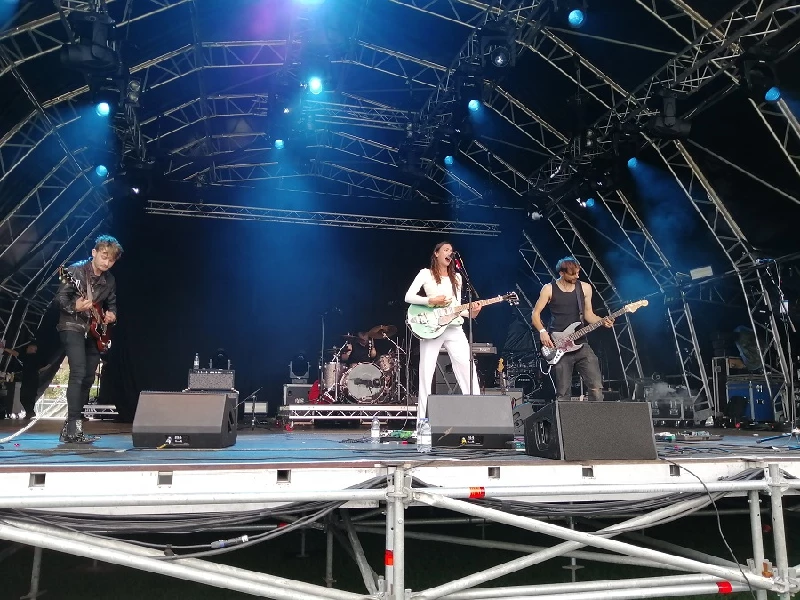
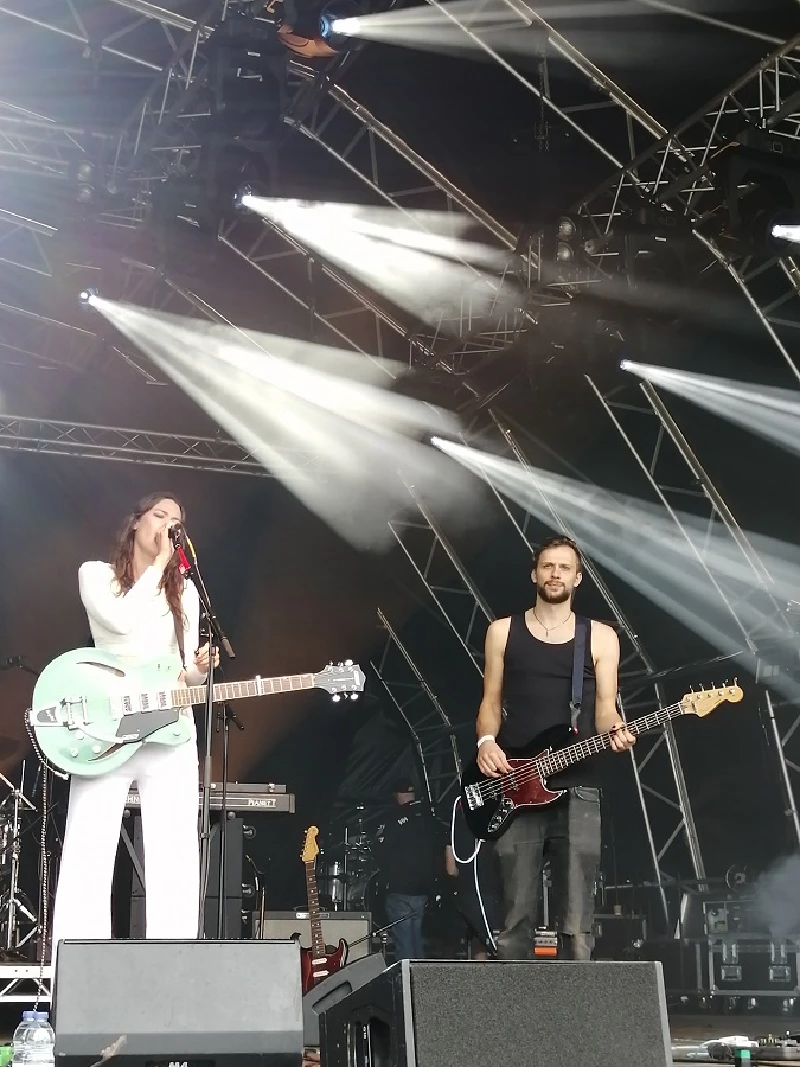
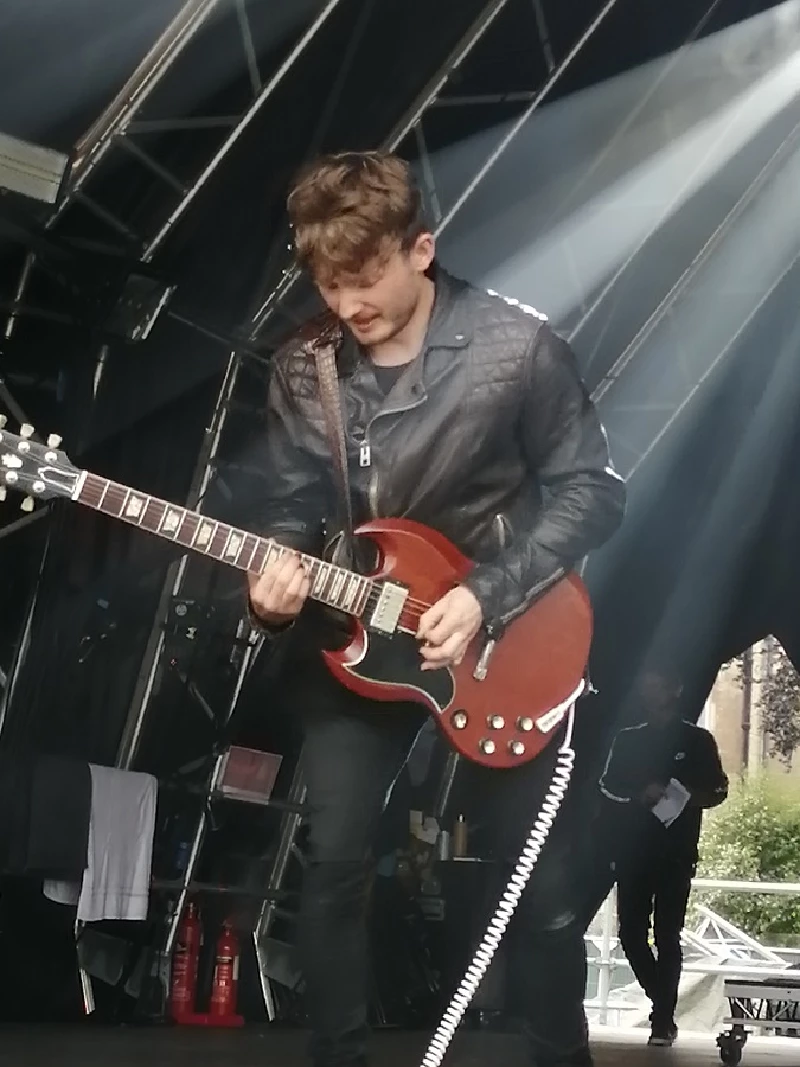
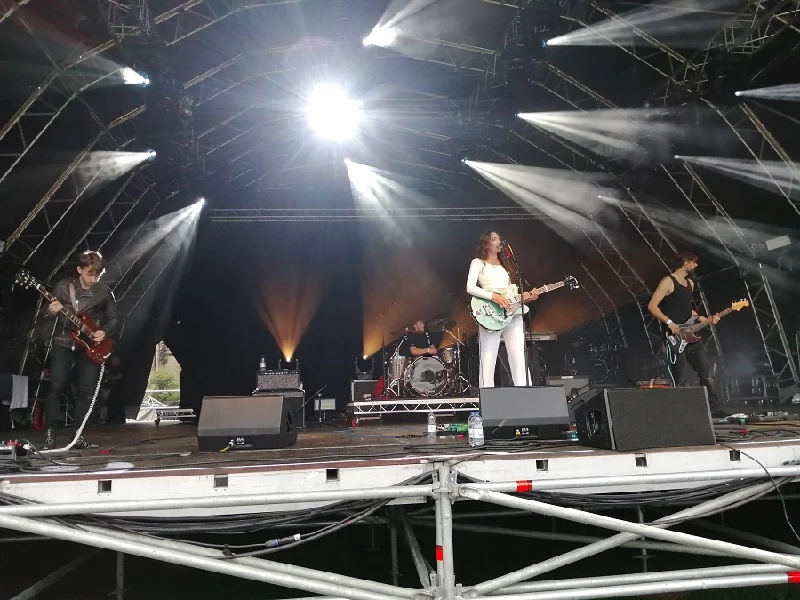
intro
In this special edition of ‘In Dreams Begin Responsibilities,’ Steve Miles continues his insightful exploration of the relationship between music and mental health by looking in depth at just one artist, the fascinating and fantastic unsigned Life In Mono, and meditating on the meaning of resilience.
most viewed articles
current edition
John McKay - InterviewCathode Ray - Interview
Robert Forster - Interview
When Rivers Meet - Waterfront, Norwich, 29/5/2025
Spear Of Destiny - Interview
Fiona Hutchings - Interview
Carl Ewens - David Bowie 1964 to 1982 On Track: Every Album, Every Song
Chris Wade - Interview
Shrag - Huw Stephens Session 08.12.10 and Marc Riley Session 21.03.12
Brian Wilson - Ten Songs That Made Me Love...
previous editions
Heavenly - P.U.N.K. Girl EPBoomtown Rats - Ten Songs That Made Me Love....
Manic Street Preachers - (Gig of a Lifetime) Millennium Stadium, Cardiff, December 1999
Allan Clarke - Interview
Oasis - Oasis, Earl's Court, London, 1995
Barrie Barlow - Interview
Beautiful South - Ten Songs That Made Me Love...
Pixies - Ten Songs That Made Me Love...
Chuck Prophet - Ten Songs That Made Me Love...
Dwina Gibb - Interview
most viewed reviews
current edition
Peter Doolan - I Am a Tree Rooted to the Spot and a Snake Moves Around Me,in a CircleVinny Peculiar - Things Too Long Left Unsaid
Garbage - Let All That We Imagine Be The Light
Vultures - Liz Kershaw Session 16.06.88
John McKay - Sixes and #Sevens
Little Simz - Lotus
HAIM - I Quit
Pulp - More
Lapsley - I'm a Hurricane, I'm a Woman In Love
Billy Nomates - Metalhorse
Pennyblackmusic Regular Contributors
Adrian Janes
Amanda J. Window
Andrew Twambley
Anthony Dhanendran
Benjamin Howarth
Cila Warncke
Daniel Cressey
Darren Aston
Dastardly
Dave Goodwin
Denzil Watson
Dominic B. Simpson
Eoghan Lyng
Fiona Hutchings
Harry Sherriff
Helen Tipping
Jamie Rowland
John Clarkson
Julie Cruickshank
Kimberly Bright
Lisa Torem
Maarten Schiethart
